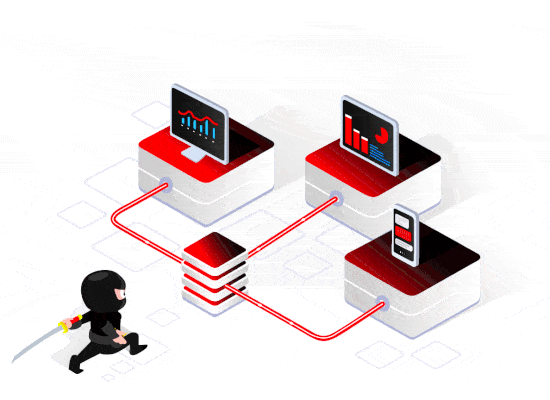Interview with Olivier Koczan - CEO at AIRBUS SLC
/SDBR News: Could you tell us in a few words what makes RRF (Réseau Radio du Futur - radio network of the future) such an important programme?
Olivier Koczan: Compared to the current solution, the range of services proposed as part of the RRF is very innovative. Today, most public security forces operate using voice-based, narrowband technologies. However, the RRF will take advantage of high-speed (broadband) networks to transmit voice, video, and large volumes of data. This is a move towards a multimedia solution with new uses. The RRF also allows for greater pooling of resources, in accordance with international standards. The various security and operational forces will thus share the same tool, which greatly simplifies interoperability issues. Of course, these interoperability possibilities also extend beyond borders. That was the purpose of the “Broadway” project that we carried out on behalf of the European Commission on the topic of interoperability of so-called “RRF” systems between bordering countries. Thirdly, there should be absolutely no compromise on what is essential for security forces: the security and resilience of the system.
Olivier Koczan
SDBR News: Didn’t this RRF project start a long time ago?
Olivier Koczan: This project actually kicked into high gear in 2020 for Airbus Secure Land Communications, but the idea for the French Ministry of the Interior to move towards broadband is older than that. We submitted our offers in 2021 after preparatory work on the administrative side in 2019 and 2020.
SDBR News: Why did it take so long?
Olivier Koczan: Because beyond the main technical needs, the goal was to offer a solution that meets the day-to-day expectations of operational staff. We had to be fully attentive to the people using the technology, to their needs and constraints on the field, and to their desire for increased efficiency. The technique is easy to master, but it takes time to refine it for specific user purposes due to certain highly specific constraints.
SDBR News: What does this contract represent for Airbus Secure Land Communications?
Olivier Koczan: For Airbus Secure Land Communications, being referenced in France is obviously significant, both to reassure countries already working with us but also to encourage those preparing to launch calls for tenders and who are not yet customers. The RRF solution includes the roadmap in the contract, but it also continues to evolve and adapt to new needs expressed by other countries, to new operating methods or to new tools.
SDBR News: Is the proposal you made to French authorities a "copy" of what you are already doing with countries in northern Europe or is it a really different solution?
Olivier Koczan: The proposal is based on the specific needs expressed by the Ministry of the Interior. Of course, it is a reflection of our know-how as a supplier and integrator of critical communication and collaboration solutions, but is obviously not a copy. The authorities of each country necessarily have specific constraints and specificities. These solutions are highly scalable and are tailored to fit the needs of each customer. The RRF project represents a major advance as it was designed for a large country and many users (at least 300,000), including several communities, each with its particular needs, that will come together on a single system. The project will therefore offer added flexibility for all users and new requirements in terms of security.
SDBR News: What does the implementation plan look like?
Olivier Koczan: The RRF solution will be launched in several phases. The first is scheduled for the first half of 2024, and new versions will follow in 2025 and 2026. The timing of the implementation will be set by the Ministry of the Interior according to the different communities of users: police, gendarmerie, fire-fighters, prison administration, etc.
SDBR News: So will there be overlap between the two solutions, the old and the new?
Olivier Koczan: Yes of course. We have planned bridges between the two technologies. The goal is not to set up two systems that don't communicate with each other. The 7-year contract (including 4 fixed years and an extension of 3 additional years) will allow for the completion of this transition.
SDBR News: How many teams will support this implementation?
Olivier Koczan: This is a major framework project, for both Capgemini and Airbus SLC, and all our partners on the project: Streamwide, Prescom, Econocom, Ericson and Samsung. A large number of teams will therefore be working on this project, whether in terms of development and configuration of the solution, installation or services.
SDBR News: What is Capgemini's role in this consortium?
Olivier Koczan: Capgemini is our partner within the consortium in charge of work package 2. Airbus Secure Land Communications will focus mainly on the MCX** application layer, terminals, accessories and everything related to use in schematic terms. Capgemini is concentrating on the construction of data centres, the integration of Ericsson's software layer, which is the 4G LTE and future 5G network that will provide the service layers we will support with our "final user" services.
SDBR News: Is there anything else you would like to add?
Olivier Koczan: We are obviously very pleased with the decision of the French Ministry of the Interior to award work package 2 of the Radio Network of the Future, the secure and resilient broadband network for emergency and internal security forces, to the consortium led by Airbus Secure Land Communications* and Capgemini. This decision is an affirmation that our consortium submitted a competitive offer that meets the expectations of all users. This decision also reflects the continuity of our cooperation with the Ministry of the Interior: our in-depth knowledge of the practices, needs, constraints and missions of the security forces was an undeniable plus. With this decision, France will once again become a leader in the PPDR (Public Protection & Disaster Relief) communications ecosystem.
* https://www.securelandcommunications.com
** Mission Critical Services (MCX) are designed to interoperate with legacy LMR networks to provide integrated MCPTT, MCVideo and MCData voice capabilities.
Photos credits: Airbus SLC
















